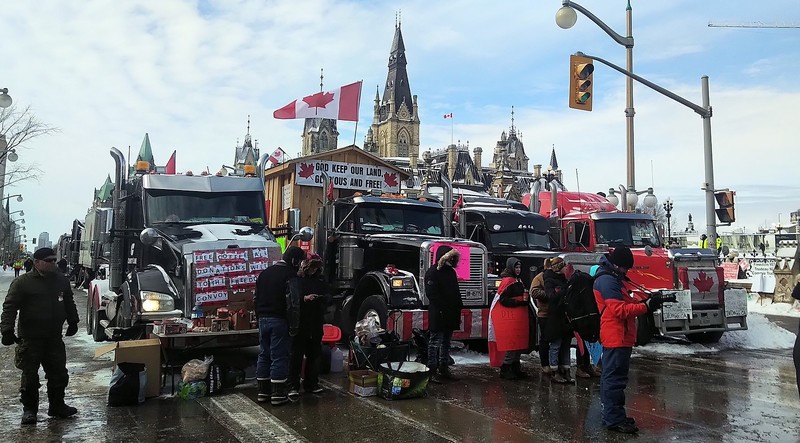The public inquiry into the use of the Emergencies Act to break up convoy protests earlier this year has officially come to a close.
Driving the news: Six weeks of testimonies from politicians, protestors, and citizens will feed into a final report on the findings (to be released early next year) that will seek to answer, once and for all, whether or not the government was justified in invoking the act.
- The Emergencies Act defines an emergency as a temporary "urgent and critical situation" that "seriously endangers lives, health or safety and is of such proportions or nature as to exceed the capacity or authority of a province to deal with it."
- Invoking the act to clear the blockades (which included unblocking trade routes for major industries like cattle and automotive) also allowed the government to do things like go after funds supporting anything deemed as an illegal activity.
Why it matters: From a reputational perspective, the first-ever use of emergency powers in response to unprecedented protests drew widespread attention from the global business community, who previously saw Canada as a stable, nothing-to-see-here country.
- Canada’s finance minister said the situation ran the risk of causing “possibly irreparable harm to [Canada’s] trading relationship with the US" and that major bank CEOs had expressed concerns about their investments in Canada.
Bottom line: Canada is far from the only country that experienced pandemic-era protests, and the Emergencies Act hearings serve as a reminder that (despite being a pretty calm place) our economy isn’t immune from the global wave of political instability.
